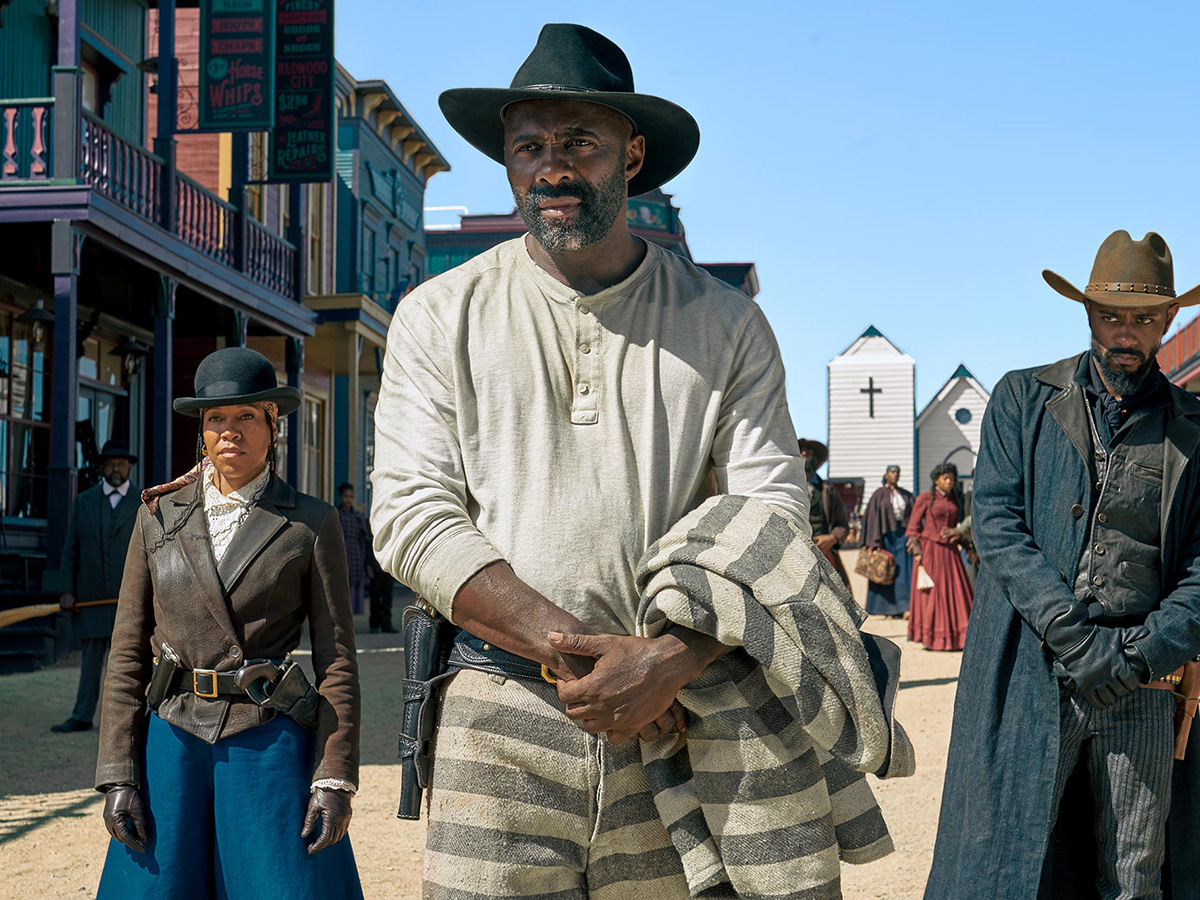
The opening sequence of “The Harder They Fall” displays the words, “While the events of this story are fictional … These. People. Existed,” and what follows is a thrilling interpretation of the classic western, adventure. Its narrative follows Nat Love, played by Jonathan Majors, and his gang of quick witted outlaws as they set out on an epic revenge journey to find Rufus Black, the infamous crime boss played by Idris Elba. Power and persisting trauma inflicted by patriarchal figures are running themes in the film.
On first watch, the plot takes a backseat to the prominent creative direction and compelling cast of characters. Because this movie tells the story of real historical figures who lived in largely different time periods and most likely did not have much interaction in their real lives, there is a healthy suspension of belief necessary to follow the story’s arc. Each cast member underwent an extensive process of training in weaponry usage and horseback riding, resulting in convincing command on screen.
“The Harder They Fall” features a score and soundtrack that compliment the motion picture very well. Heavy usage of soul, afrobeats, reggae, hip-hop and Caribbean influence underscore the overarching ode to Blackness. Each song is used either as a transition to the next scene or is particularly curated to emphasize the messaging and imagery on visual display. Music from the legendary Jamaican dancehall and reggae artist Barry Levington underscores the close-up shots of each of the narrative’s trio of antagonists.
In the Spotify enhanced album, an immersive experience that interweaves video clips and interviews with a given playlist, Samuels emphasizes the importance of the musical influences.
“For me, music and film are the same thing … It’s all just storytelling. One is just told to melody, one uses visuals but they go hand in hand,” he said.
As the Wild West has come to be synonymous with primarily white outlaws engaging in quickdraw duels outside of old-timey saloons, director Jeymes Samuels introduces a fresh take on the Western genre. The Western aesthetic has pervaded public consciousness once again over the last few years, reintroducing Black figures to a narrative that has historically worked to erase them: from Lil Nas X with “Old Town Road” (2019) to Solange’s “When I Get Home” (2019) visual album and Netflix titles “Concrete Cowboy” (2021) and now the “The Harder They Fall” (2021). There is an undeniable current renaissance that recognizes that Black cowboys do and always have existed in the continental South and West.
No work is without room for fair critique, however. Many of the forest and Old West town sets leave much to be desired. With the breathtaking visual effects of “Squid Game,” audiences have seen what is possible with a budget from Netflix. It does seem to be lacking in this title.
Additionally, the motion picture does perpetuate some harmful tropes. Stagecoach Mary, played by Zazie Beetz, is offered some lines that build her persona up to be quite independent and capable, yet her character finds herself in a damsel-in-distress role for a large part of the film. Not only this, but the casting crew’s own bias missed a great opportunity to break the mold of upholding ageism, colorist erasure and fatphobia in visually depicting Stagecoach Mary. Instead of faithfully representing her real-life counterpart as a stout, dark-skinned Black women, they opted to cast a thin, young and biracial woman to play the part. It is asking a lot of the audience to overlook the stance Samuels and his team have taken on desirability politics. As a new Western develops this movement that aims to represent Black communities, filmmakers hold a responsibility to create spaces on screen that acknowledge Black women at every intersection of their identities.
Verdict: Overall, the film is a thrilling and exciting work of fiction writing whose buildup to the plot twist ending is completely satisfying.







